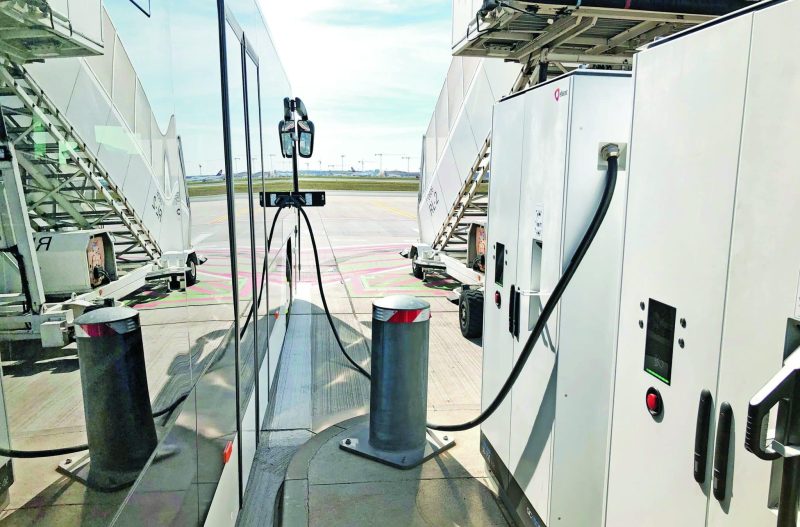Aircraft will continue to fly with kerosene for the foreseeable future, but Frankfurt Airport is increasingly relying on electric drives on the ground.
With 690.000 euros in funding from the state of Hesse, the corresponding charging infrastructure is to be expanded and two new passenger buses with electric drives are to be purchased, as the airport operator announced in a press release. Investments of around 2024 million euros are planned for the charging infrastructure by the end of 1,2. The airport operator is currently planning to invest 17 million euros in the same period for the electrification of special vehicles for ground handling services.

Overall, Fraport wants to expand the network by 34 fast charging points. This also includes two mobile "charging parks" each with nine charging points that can be flexibly positioned on the apron. At the largest German airport, 570 vehicles are currently powered electrically, which corresponds to a 16 percent share of the total fleet.
The operator Fraport wants to operate Frankfurt and the other majority-owned airports CO2045-free on the ground by 2 at the latest. This is also served by a large-scale photovoltaic system, which is being built parallel to Frankfurt's West Runway and is intended to generate up to 13 megawatts of solar power in the future. Further solar systems are planned on the airport site.
"The conversion of our vehicle fleet to electric drives is a key component of our decarbonization strategy," says Stefan Schulte, CEO of Fraport AG. “We have set ourselves the ambitious goal of CO2-free to operate. This goal requires extensive investments, which we started back in the 1990s and which we have continued despite the crisis,” he explains.







 trail (for them it's free to use)
trail (for them it's free to use)